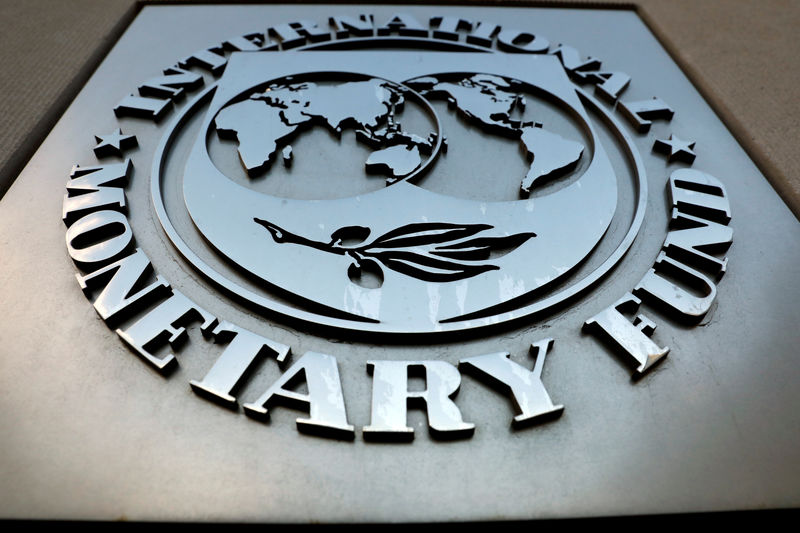By Leika Kihara and David Lawder
WASHINGTON (Reuters) - Policymakers from the world's major economies on Friday warned that risks posed by trade and geopolitical tensions could slow already-weakening global economic growth, but offered little beyond calls for using all available tools to prevent recession.
The International Monetary Fund also said the U.S.-China trade war and slumping Chinese demand were heightening risks to Asia, the world's fastest-growing region, adding to signs of a darkening global outlook.
"Headwinds from global policy uncertainty and growth deceleration in major trading partners are taking a toll on manufacturing, investment, trade, and growth," Changyong Rhee, director of the IMF's Asia and Pacific department, said during a news conference at the IMF and World Bank fall meetings.
"The intensification in trade tensions between the U.S. and China could further weigh on confidence and financial markets, thereby weakening trade, investment and growth," he said.
Japanese Finance Minister Taro Aso, who chaired the two-day meeting of Group of 20 finance leaders, said while the global economy continues to expand, the pace of growth was slowing.
"For global growth, the balance of risk remains tilted to the downside, particularly with the further escalation of trade and geopolitical tensions," Aso said at a news conference. "All policy tools must be used to achieve sustainable growth."
The G20 finance leaders did not issue a communique after their meeting.
The widening fallout from the trade conflict between Washington and Beijing forced the IMF this week to slash its forecast for global growth to the slowest pace since the 2008-2009 financial crisis.
While a tentative deal reached by the United States and China last week offered some relief, global policymakers had little to cheer about as the trade spat already has dented business sentiment and hurt export-reliant economies - including those in Asia.
In its World Economic Outlook report on Tuesday, the IMF cut its economic growth forecast for the Asia-Pacific region to 5.0% for this year and 5.1% for 2020 - the slowest pace of expansion since the global financial crisis.
A faster-than-expected slowdown in China's economic growth could also generate negative spillovers in the region, as many Asian countries have supply chains closely tied to China, the IMF's Rhee said.

The IMF slashed China's growth forecast to 6.1% for this year and 5.8% for 2020, pointing to the impact from the trade conflict and tighter regulation to address excess debt.